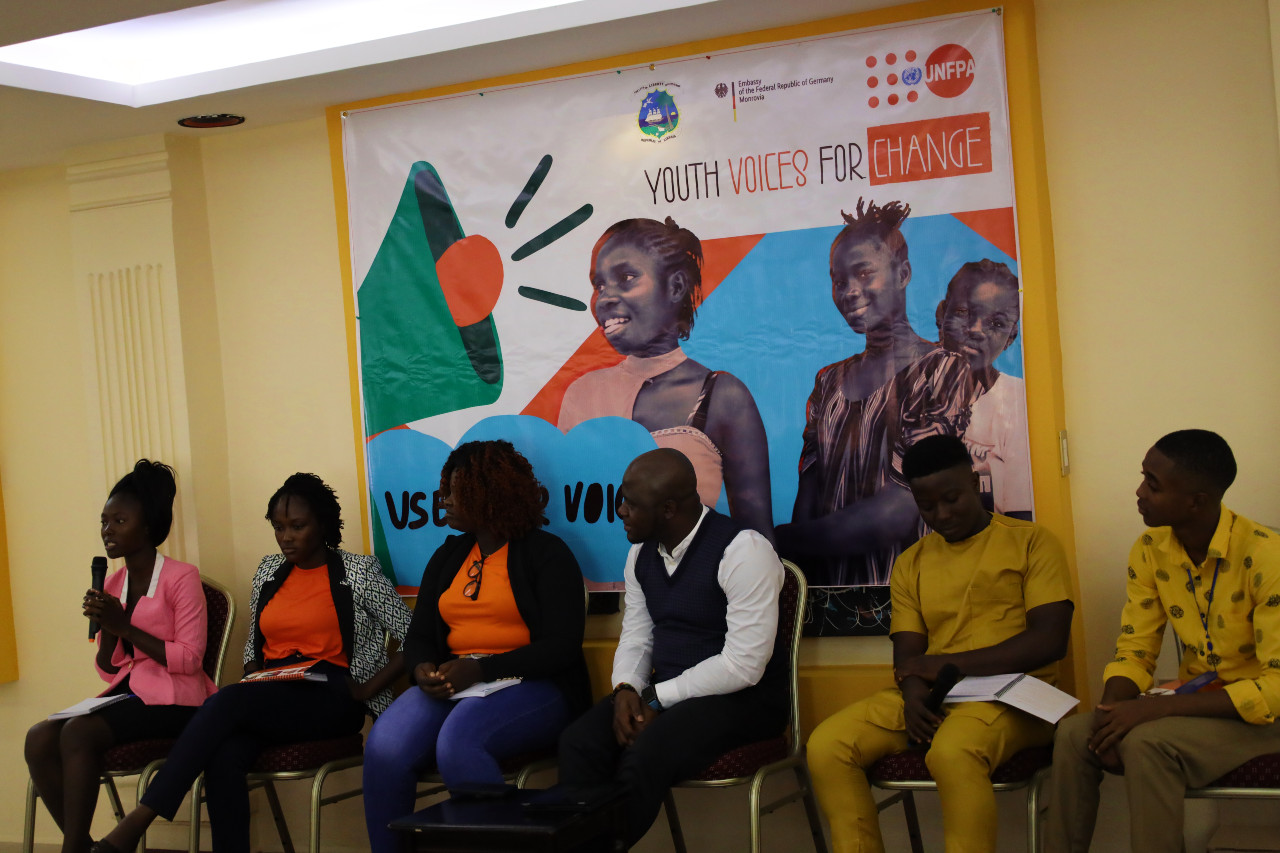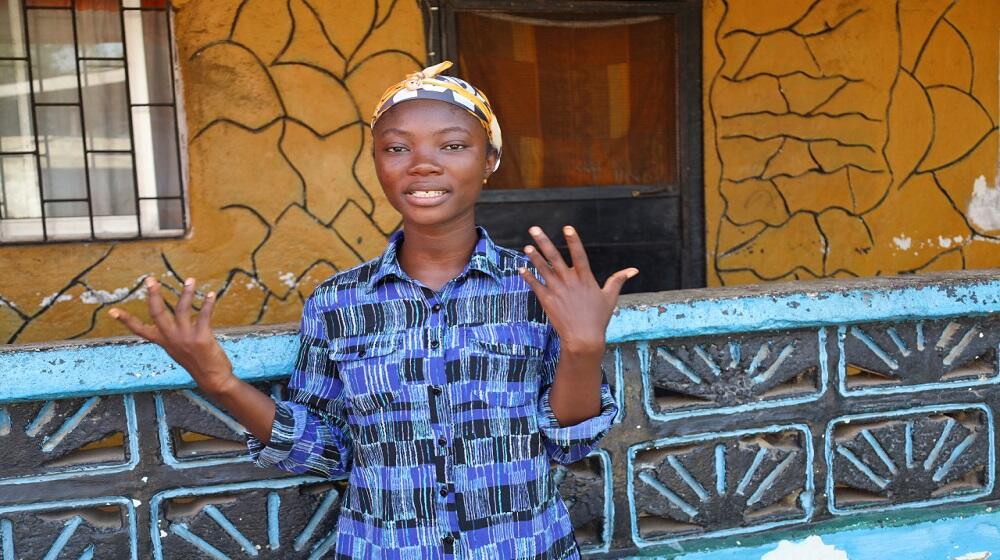MONROVIA, Liberia – Nearly 75 percent of Liberia’s population is under 35. Adolescents and youth aged 10-24 comprise almost 36 percent of the people. Yet, many of them are unable to participate fully in society. They are often restricted by the lack of opportunities to decide about their bodies and life-course development opportunities such as health, education, and employment.
Youth rising to claim their agency
But many young people are now joining forces to make their voices heard and advocate collectively for their sexual and reproductive health and rights (SRHR).
One of them is Joletha K. Joe, a member of the Liberian Youth Voices for Accelerating the International Conference on Population and Development (ICPD).
“I want my voice to be among the voices of young people shouting for a change in the status quo. For many adolescents and young people, the lack of opportunities to decide about their bodies often leads them to early pregnancies and childbirth,” says Joletha.
“Many of my peers also suffer violence, including gender-based violence (GBV) and female genital mutilation (FGM),” she adds.
According to Joletha, the engagement of community structures is critical to efforts to ensure the realization of SRHR by adolescents and young people and reduce sexual and gender-based violence (GBV) and harmful practices, including FGM and early marriage.
“I grew up in a community wherein most of my peers were subjected to FGM, some of them against their will. It took the courage of my mother to resist community members’ attempts to have me initiated,” Joletha said.
“My mother, a victim of FGM, said that she would not allow me to go through the same trauma that she experienced,” she added.
It is estimated that 38 percent of women and girls in Liberia have been subjected to FGM; 12 percent of girls are married before the age of 18, and 3 in 10 girls ages 15-19 are already mothers.
Supporting young people to become drivers of change
To revert this trend, the United Nations Population Fund (UNFPA) supports Liberia in empowering adolescents and young people through a range of actions, including a multisectoral and innovative three-access point model (community, school, and health facilities) to deliver an integrated package of sexual reproductive health and rights (SRHR) and GBV information and services in an adolescent and youth-friendly manner. UNFPA also supports rights holders, including adolescents and young people, by helping them participate in decisions affecting them and strengthening their ability to advance human rights and development issues.
A part of these efforts is the launch of the Liberian Youth Voices for Accelerating the ICPD on 05 December 2023 in Monrovia.
The initiative is part of the Young Voices for Change project by UNFPA, with support from the Federal Republic of Germany Embassy in Liberia. It seeks to harness the voices of young people to realize their SRHR and reduce GBV and harmful practices, including FGM and early marriage.

©UNFPA Liberia/Calixte S. Hessou
Speaking when he formally launched the Project, the German Ambassador to Liberia, Jakob Haselhuber, said, “Germany is proud to contribute to the fight to end violence against women and girls and also to the dialogue between men and women on ending gender-based violence and harmful practices in Liberia.”
“The fight to end violence against women and girls will not succeed if it is only led by women because we also need to take men on board,” Ambassador Haselhuber said.
In her welcome remarks, the UNFPA Liberia Country Representative, Bidisha Pillai, said the welfare of adolescents and young people is at the heart of the ICPD agenda.
“Liberia’s youthful population can propel the desired socio-economic transformation and secure a brighter future for Liberia; this is why the Liberian Youth Voices for Accelerating the ICPD is crucial to providing the platform for them to advocate for the future they need collectively,” says UNFPA Liberia Country Representative, Bidisha Pillai.


